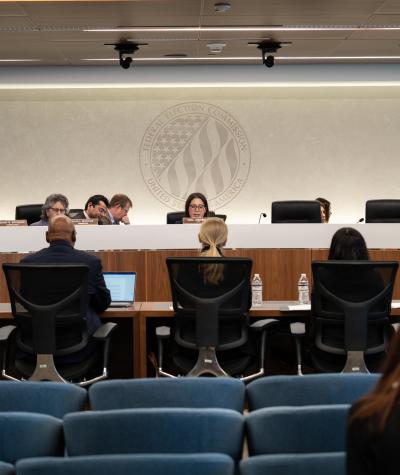The Federal Election Commission (FEC), the sole government agency tasked with enforcing federal campaign finance law, has a problematic pattern of delaying public disclosure of why it chooses to dismiss complaints of alleged campaign finance violations.
But a new ruling marks a step forward in ensuring that the FEC is more accountable in its decision making.
Last week, the U.S. Court of Appeals for the District of Columbia Circuit issued a ruling that requires the agency to explain its reasoning for dismissing complaints in a timely manner. This ruling was made in response to a case filed by End Citizens United (ECU), which was represented by Campaign Legal Center Action (CLCA), against the FEC.
In a complaint filed with the FEC in 2019, End Citizens United PAC alleged that then-President Donald Trump’s campaign violated federal campaign finance law by soliciting and directing unlimited funds to a super PAC called America First Action. Not only did the agency fail to enforce the law against the Trump campaign, but the FEC waited over two months to release any explanation of its dismissal.
This delay also happened to extend beyond the deadline for ECU to file a lawsuit challenging the FEC’s dismissal of its administrative complaint.
Per the appeals court, FEC commissioners are expected to explain their decision to dismiss a case in a Statement of Reasons (SOR) “at the time” of the dismissal itself. The court noted that delays by the agency in explaining its decisions make it harder for complainants like End Citizens United to hold the FEC accountable.
Such delays hinder meaningful judicial review, fail to promote reasoned decision-making, fail to allow the FEC opportunity for self-correction, and can even suggest that the agency’s stated reasons for a dismissal are nothing more than convenient positions created solely to support the FEC’s legal arguments in court. The D.C. Circuit Court has ordered that the case be returned to the FEC for further action.
Unless the FEC can be held accountable for its failures to enforce the law, special interests will have an easier time of shaping our politics to the detriment of voter trust and anti-corruption efforts aimed at improving our nation’s electoral system.
It is well past time for the FEC, the only agency explicitly tasked with enforcing federal campaign finance law, to do its job. A healthy and robust democracy counts on this.

